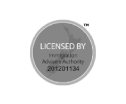Moving to New Zealand under the Active Investor Plus visa is an exciting step towards securing residency in one of the world’s most stable and desirable countries.1 For the high-net-worth individual, however, understanding the tax landscape is just as critical as planning the investment itself. New Zealand’s tax system has unique features that can be highly advantageous for new migrants, but it also contains complexities that require careful navigation.
This guide provides a comprehensive overview of the key tax implications for new residents under the Active Investor Plus visa. We will cover how New Zealand determines tax residency, the crucial four-year tax exemption on foreign income, and how different investments are treated both during and after this exemption period.
Disclaimer: This article is for informational purposes only and does not constitute legal or financial advice. Tax laws are complex and subject to change. We strongly recommend seeking personalized advice from a qualified tax professional specializing in New Zealand international tax.
Understanding Your New Zealand Tax Residency
The first and most important concept to grasp is that tax residency is separate from your immigration status.2 Holding an Active Investor Plus visa does not automatically define your tax obligations. Instead, New Zealand’s Inland Revenue Department (IRD) uses two primary tests to determine if you are a tax resident.
Once you are considered a New Zealand tax resident, you are generally taxed on your worldwide income, not just the income you earn in or bring into the country.3
The two tests for tax residency are:
-
The 183-Day Rule: You are considered a tax resident if you are physically present in New Zealand for more than 183 days in any 12-month period. This is a “rolling” period, not a fixed calendar or tax year. Your tax residency is backdated to the first of those 183 days.4
-
The Permanent Place of Abode (PPOA) Test: You can become a tax resident even without meeting the 183-day rule if you have a “permanent place of abode” in New Zealand. This is more than just owning a property; it involves having a dwelling available for your use combined with other factors that demonstrate a lasting connection to New Zealand, such as family and social ties, business interests, and personal property.4
The Transitional Resident Exemption: A Four-Year Tax Advantage
To make moving to New Zealand more attractive, the government offers a significant tax benefit for new migrants known as the transitional resident exemption.4 This is one of the most valuable tax planning tools available to investor visa holders.
If you qualify, you are exempt from paying New Zealand tax on most types of your foreign-sourced income for a period of up to four years (or 49 months, depending on your arrival date).6
Who is eligible?
You automatically qualify as a transitional resident if you are a new migrant or a returning New Zealander who has not been a tax resident for at least the last 10 years.6 This is a once-in-a-lifetime exemption.6
How long does the exemption last?
The exemption period begins on the day you become a tax resident and lasts for four years from the end of that month.6 For example:
-
If you establish a permanent place of abode on 22 April 2025, your exemption starts that day and ends on 30 April 2029.6
-
If you qualify under the 183-day rule, the exemption is backdated to the first of those 183 days but the four-year clock starts from the end of the month you physically crossed the 183-day threshold.6
What foreign income is exempt?
During the transitional period, you generally do not have to pay New Zealand tax on the following types of foreign income 6:
-
Overseas interest and dividends.
-
Rental income from overseas properties.
-
Royalties from overseas.
-
Gains on the sale of overseas property.
-
Income from foreign trusts.
-
Income that would normally be taxed under New Zealand’s Controlled Foreign Company (CFC) or Foreign Investment Fund (FIF) rules.6
What foreign income is NOT exempt?
The exemption does not apply to all foreign income. You will still need to pay New Zealand tax on foreign-sourced employment income or income from services performed overseas while you are a tax resident here.6
This four-year window is a critical time for new residents to review their global asset structures and plan for when the exemption ends.
Tax on Investments: After the Exemption Period
Once your transitional residency period expires, you become fully taxable on your worldwide income. How your investments are taxed depends on their type and location.
1. Foreign Investments (FIFs and CFCs)
-
Foreign Investment Funds (FIFs): If you hold less than a 10% interest in an overseas company or fund (and your total holdings cost more than NZ$50,000), you are subject to the FIF rules.10 The most common calculation method, the Fair Dividend Rate (FDR), taxes you on a deemed 5% return of the investment’s opening market value each year, regardless of the actual income or capital gain.3 This can create tax liabilities even when no cash is received. In welcome news for migrants, the government has introduced a new, optional realisation-based method for assets acquired before becoming a resident, which taxes dividends and a portion of the actual capital gain only when the shares are sold.11
-
Controlled Foreign Companies (CFCs): If you have a controlling interest in a foreign company (typically a stake of 10% or more where a few NZ residents hold over 50%), the CFC rules apply.12 In general, “passive” income like rent and royalties is attributed to you and taxed annually. Income from an “active” business is usually exempt from NZ tax until it is paid out to you as a dividend.12
2. New Zealand Investments
Income from your investments in New Zealand is taxable from day one.
-
Managed Funds, Direct Investments, and Equities: New Zealand has a favorable tax regime for managed funds called Portfolio Investment Entities (PIEs). Income earned through a PIE is taxed at your Prescribed Investor Rate (PIR), which is capped at 28%—well below the top personal income tax rate of 39%.13 This makes investing through a
New Zealand-based PIE fund highly tax-efficient for high-income earners.14 To prevent double taxation on dividends from New Zealand companies, a system of imputation credits is used.13
-
Bonds and Bank Deposits: Interest earned from NZ bonds and bank accounts is subject to Resident Withholding Tax (RWT) at your marginal tax rate.14
3. Foreign Trusts
The taxation of trusts is a highly complex area. If you are a beneficiary of a foreign trust, distributions you receive in New Zealand may be taxable.15 Crucially, if you were a settlor of a trust before moving to New Zealand, your change in residency status could cause the trust to become a “non-complying trust,” potentially making its worldwide income subject to tax in New Zealand.16 This is a significant risk that requires expert planning
before you become a tax resident.
4. Philanthropy
As part of the(https://iclegal.co.nz/active-investor-plus-visa-balanced-category-ultimate-guide/), you can make philanthropic donations.18 Donations made to approved
donee organisations in New Zealand are eligible for a tax credit, allowing you to claim back a portion of your contribution.19
Other Key Tax Considerations
-
Capital Gains Tax: New Zealand does not have a comprehensive capital gains tax.1 However, gains from the sale of certain assets can be taxed as income. This includes investment properties sold within a specified period (under the “bright-line test”) and shares purchased with the primary intention of resale.2
-
Double Tax Agreements (DTAs): New Zealand has(https://www.taxpolicy.ird.govt.nz/tax-treaties/role-double-tax-agreements) to prevent double taxation.2 If you pay tax in another country on income that is also taxable in New Zealand, you can generally claim a foreign tax credit to offset your New Zealand tax liability.21
-
Estate, Gift, and Wealth Taxes: New Zealand does not have any inheritance tax, gift duty, or general wealth tax, which is a significant advantage for wealth planning.1
Conclusion: Plan Ahead for a Smooth Transition
The New Zealand tax system offers significant advantages for new migrants, most notably the four-year transitional tax exemption on foreign income. However, the rules governing worldwide income, particularly for foreign investments and trusts, become complex once this period ends.
For any high-net-worth individual considering the Active Investor Plus visa, proactive and professional tax planning is not just recommended—it is essential. Engaging with a tax advisor who understands the nuances of New Zealand’s international tax rules before you arrive will ensure you can structure your affairs efficiently, maximize the benefits available, and enjoy a seamless financial transition to your new home.










